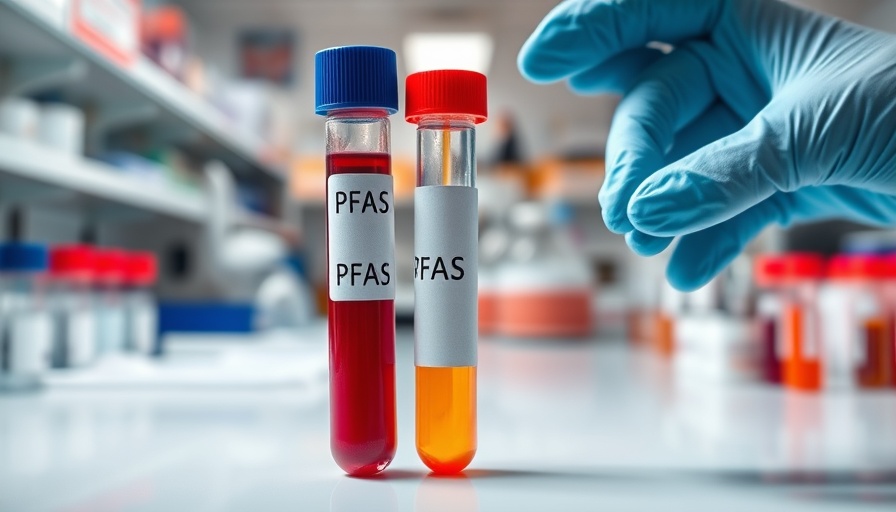
Why Individual Blood Tests for PFAS Do Not Offer the Right Answers
A recent statement from health experts raises important questions about the effectiveness of individual blood tests for detecting PFAS (per- and polyfluoroalkyl substances), often referred to as "forever chemicals." These substances have been linked to various health issues, and concerns about their presence in our bodies are leading many to consider blood testing. However, experts argue that these individual tests might not be the optimal solution, particularly for older individuals seeking peace of mind.
Understanding PFAS: A Brief Overview
PFAS are a group of synthetic chemicals used in numerous products like non-stick cookware, water-resistant fabrics, and food packaging. The potential health risks associated with PFAS exposure include cancer, liver damage, immunological effects, and hormonal disruption. As awareness of PFAS grows, many feel compelled to test their blood for these harmful substances. But before jumping on the testing bandwagon, it's essential to understand the nuances involved.
The Complexity of Blood Testing for PFAS
Experts are recommending against individual blood tests for several reasons. Firstly, the tests can be expensive and might not provide actionable information. For many older adults, understanding the risks of exposure is far more beneficial than knowing a specific number from a blood test. The interpretation of results is also complex; the levels of PFAS in one's blood may not correlate directly with health risks or provide a clear pathway to solutions.
Broader Context: Transitioning to Cleaner Products
Instead of focusing on individual tests, experts suggest that the attention should shift towards reducing exposure to PFAS in daily life. This can include choosing PFAS-free products, being mindful of purchasing decisions, and advocating for policies that limit or ban the use of these chemicals. For older individuals, understanding how to live a healthier and cleaner lifestyle becomes pivotal in managing their well-being.
Practical Tips for Reducing PFAS Exposure
- Shop Wisely: Look for products labeled as PFAS-free or made with natural materials.
- Avoid Fast Food Packaging: Steer clear of fast-food items, which are often linked to PFAS contamination.
- Use Teflon-Free Cookware: Consider alternatives such as cast iron or stainless steel cookware.
Engaging in these practices not only helps reduce PFAS exposure but also aligns with a sustainable lifestyle that benefits both health and the environment.
Communicating with Healthcare Providers
For seniors considering blood testing, it is vital to maintain open communication with health professionals regarding concerns about PFAS and overall health. Doctors can offer valuable insights and alternative strategies for health management, focusing on holistic approaches rather than isolated tests.
Embracing a Healthier Future
As discussions around PFAS continue, proactive steps can empower older adults to make informed choices about their health. Instead of concentrating on testing that might not yield helpful information, embracing lifestyle changes can lead to more substantial and long-term health benefits.
To truly embrace the idea of cleaner living, individuals can explore community resources, engage with educational programs focused on health and sustainability, and even become advocates for positive change in their communities. The more informed and proactive we are, the better equipped we become to protect our health and that of future generations.
 Rij toevoegen
Rij toevoegen






 Rij toevoegen
Rij toevoegen



Write A Comment